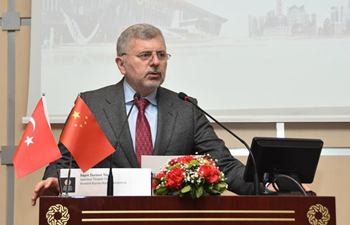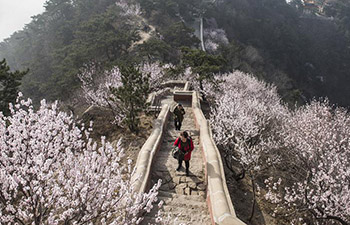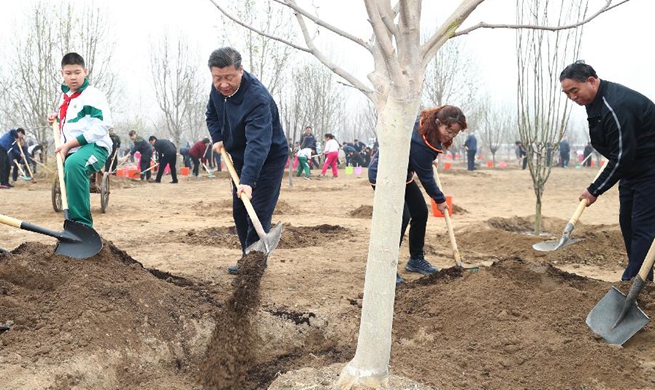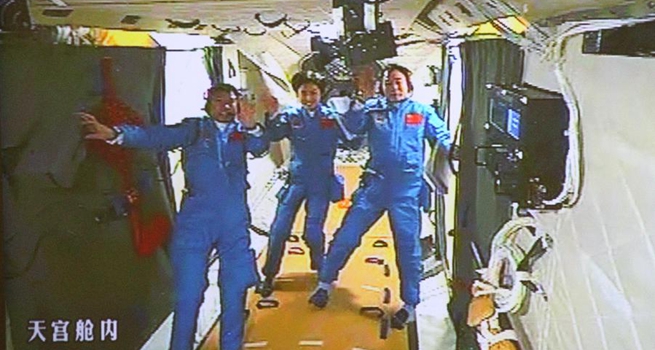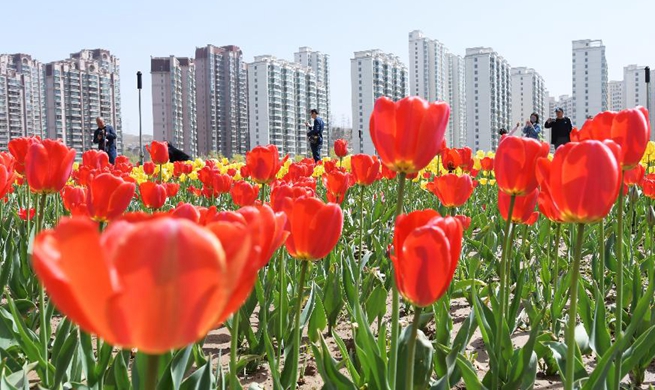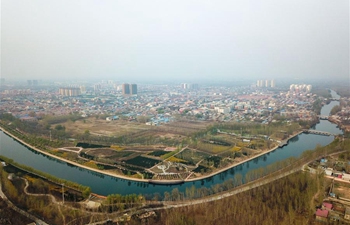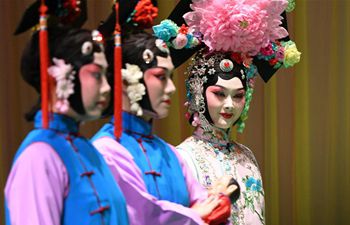SAN FRANCISCO, April 1 (Xinhua) -- Nearly 30 self-financed Chinese students studying in western U.S. have become the latest group of successful students receiving a prestigious government award for their outstanding academic achievements.
At a ceremoy held at the Chinese Consulate General in San Francisco on Sunday, Chinese Consul General Luo Linquan presented certificates and scholarships ranging from 6,000 to 10,000 U.S. dollars to each of the students from the San Francisco consular district, which covers the states of Alaska, Washington, Oregon and Nevada, as well as Northern California.
The students were among 500 winners from 25 countries who were honored for their remarkable achievements in 2017 with the Government Award for Outstanding Self-Financed Students Abroad, an annual program sponsored by the China Scholarship Council, a non-profit agency affiliated with China's Ministry of Education.
Since the award was established in 2003, a total of 5,915 outstanding Chinese students have received the highest honor given by the Chinese government to students studying in foreign universities who do not receive financial support from the government.
Luo said at the annual conferring ceremony that the 27 students who received the award in person are representatives of excellent Chinese students who study overseas.
He hoped the students will uphold the spirit of patriotism, closely follow the latest social and scientific advances back in China, and combine their own personal dreams with ongoing development in their homeland, so as to fulfill their values at a broader level.
The students are good-will ambassadors of the two countries' friendship, Luo said, adding that they should take a more active part in cultural exchanges between China and the U.S., which will facilitate efforts to boost mutual understanding between the two peoples.
As winner of the top award of the scholarships, Tianyu Liu is working on a post-doctoral program at Virginia Polytechnic Institute and State University (Virginia Tech). Liu said China has made great strides in physical chemistry and energy storage, his current area of study. The Chinese government has invested more in new energy with greater financial resources.
China has a more promising prospect in the research and development of electrical chemistry energy in the present-day world, which encourages him to a seek a teaching career at a Chinese university in the future, Liu said.
Yayuan Liu, another award recipient who is studying on a post-doctoral program at the Department of Materials Science and Engineering at Stanford University, said the award is a huge honor and encouragement for her.
As a student of Professor Yi Cui, a world famous Chinese scientist in nanomaterial science at Stanford, Liu said Cui's successful story has encouraged many Chinese students to take him as an example in their study and research with a positive approach.
"We will study hard in our academic fields and learn as much as possible technology of nanomaterial and new energy, which has an extensive application in environment," she said.
She said she is very optimistic about China's progress in science, as the government has made greater input on scientific research in both financial and human resources.
"I'll consider going back to China after my post-doctoral work in the U.S., as I see a very promising future in China," she said.
Lian Biao, also the winner of the award who is working on a post-doctoral program at Princeton University after graduating from Stanford University, said the award provides him an opportunity to keep a close connection with the motherland.
"My research area in solid state physics will not only help us better understand the world around us, but also offer more possibilities for quantum calculation," he said.
Lian, who was a former undergraduate student at Tsinghua University, said China has progressed a lot in frontier science of physics in recent years, an area where few people were able to do research during his time.
"As a Chinese, I'm very much committed to making my own contribution to China's future development after my graduation in the United States," he said.





